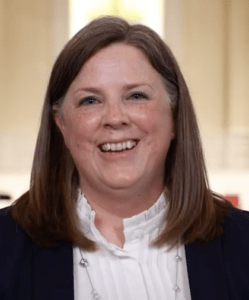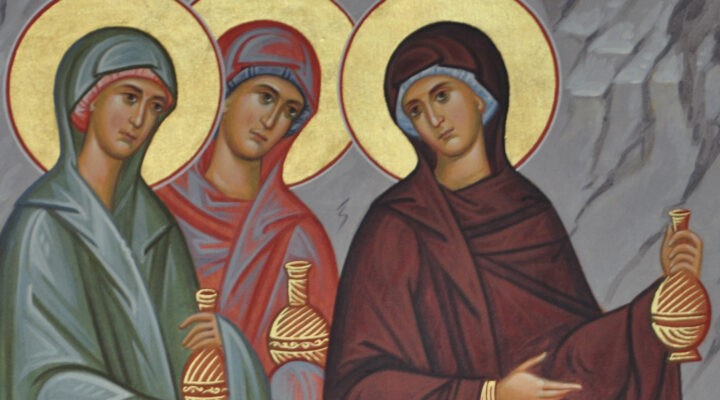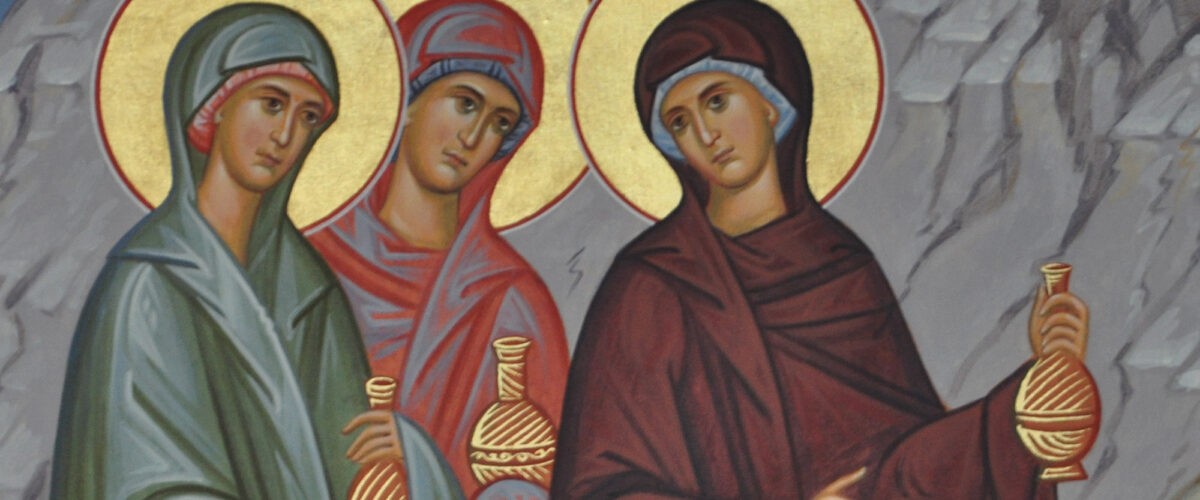“Do the best you can until you know better. Then, when you know better, do better.” — Maya Angelou
On March 1, the first day of Women’s History Month, Baptist Women in Ministry introduced a new name for its monthly donor program, the Salome Community.
The initiative is named in honor of Salome, a disciple of Jesus who is mentioned by Mark as a faithful follower of Christ who was present at Jesus’ crucifixion although others abandoned him, and who was among those who went to the tomb to find Jesus resurrected. But despite her exemplar discipleship, Salome’s name is not included in the other three Gospels.

Meredith Stone
Although she was among the most faithful of Jesus’ disciples and one of the first evangelists sent to proclaim the news of Jesus’ resurrection, Salome was overlooked by Matthew, Luke and John.
Unfortunately, Salome’s story is far too similar to that of women in ministry today who also follow Christ, minister faithfully, are called to proclaim the good news, but also are overlooked.
In a survey BWIM conducted last fall in conjunction with the preparation of our State of Women in Baptist Life report, which will be available June 2022, 59% of 466 women in ministry indicated they had experienced being overlooked or silenced in their ministry settings to some degree.
With this in mind, BWIM invited current and new monthly donors to “stand with” Salome and all those who are overlooked, as together we seek the wholeness that Salome’s name represents (from the Hebrew shalom).
However, after the campaign was introduced, a kind soul emailed to advise me that the phraseology of “stand with” is ableist and offensive to those who are unable to physically stand.
Upon reading the email, I was simultaneously grateful for this redirecting word of instruction, but also deeply remorseful.
By using the phrase, “I stand with Salome,” Baptist Women in Ministry overlooked those who cannot stand, and we apologize. By overlooking those whose physical ability is restricted, we committed the very transgression we intended to advocate against.
“Although language is fluid and ‘stand with’ is a metaphorical phrase, language also is a powerful constructer of oppression.”
Although language is fluid and “stand with” is a metaphorical phrase, language also is a powerful constructer of oppression.
As a consequence of my training in gender criticism as a method of biblical interpretation and as executive director of an organization that advocates for equity and equality for women in ministry, I constantly recognize the pervasive nature of patriarchy in our language.
Referring to all people as “man,” “mankind” or “men,” excludes more than half the population and reinforces the notion that male is better than and subsumes female.
Referring to God using exclusively male language, such as Father or King, instills the notion that God is male, and thus implies that those who are not male are not truly or fully made in God’s image.
In the same way, when we use “stand with” in order to provoke solidarity, we exclude those who are unable to stand and reinforce the superiority of able-bodied folk.
In a recent CBF Conversations online event, LaTonya McIver Penny, senior pastor of Belonging Fellowship Ministries and founder of Mary’s Grace, shared about the church’s need to enact radical hospitality to those whose physical ability is restricted.
“When we use ‘stand with’ in order to provoke solidarity, we exclude those who are unable to stand and reinforce the superiority of able-bodied folk.”
She described how rather than just making our buildings accessible, church leaders need to think holistically about creating spaces where we can not only show God’s love, but where all people can receive God’s love — which includes our language.
As Maya Angelou said, “When you know better, you do better.” This quotation is the theme of our BWIM Annual Gathering on June 28.
Due to the kind soul who emailed me and what I have learned from LaTonya McIver Penny and others, we now know better. And so BWIM must heed our own call to do better.
Although our monthly donor campaign and invitation for people to join the Salome Community will continue through March 20, we are now inviting current and new monthly donors to come alongside and seek wholeness for those who are overlooked by stating, “I am with Salome” instead of “I stand with Salome.”
May we always be searching for those who are overlooked like this faithful woman disciple of Jesus and even for those we ourselves have overlooked.
Meredith Stone serves as executive director of Baptist Women in Ministry.
Related articles:
Why the use of masculine God language matters at church | Opinion by Ashlan Rogers
How the male-centered image of God marginalizes women and disabled persons | Opinion by Mallory Challis
A response to Tish Harrison Warren about livestreaming worship | Analysis by Rick Pidcock


